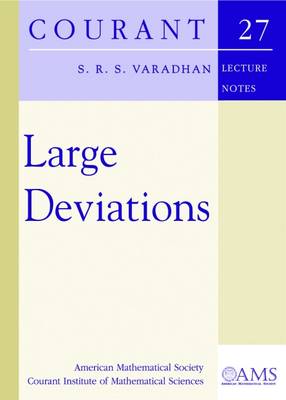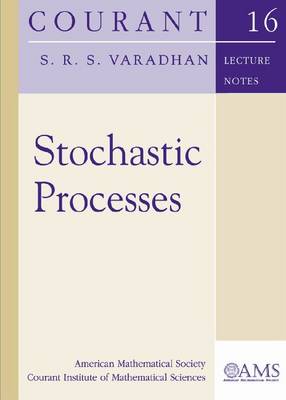Courant Lecture Notes
2 total works
The theory of large deviations deals with rates at which probabilities of certain events decay as a natural parameter in the problem varies. This book, which is based on a graduate course on large deviations at the Courant Institute, focuses on three concrete sets of examples: (i) diffusions with small noise and the exit problem, (ii) large time behavior of Markov processes and their connection to the Feynman-Kac formula and the related large deviation behavior of the number of distinct sites visited by a random walk, and (iii) interacting particle systems, their scaling limits, and large deviations from their expected limits. For the most part the examples are worked out in detail, and in the process the subject of large deviations is developed.
The book will give the reader a flavor of how large deviation theory can help in problems that are not posed directly in terms of large deviations. The reader is assumed to have some familiarity with probability, Markov processes, and interacting particle systems.
The book will give the reader a flavor of how large deviation theory can help in problems that are not posed directly in terms of large deviations. The reader is assumed to have some familiarity with probability, Markov processes, and interacting particle systems.
This is a brief introduction to stochastic processes studying certain elementary continuous-time processes. After a description of the Poisson process and related processes with independent increments as well as a brief look at Markov processes with a finite number of jumps, the author proceeds to introduce Brownian motion and to develop stochastic integrals and Ito's theory in the context of one-dimensional diffusion processes. The book ends with a brief survey of the general theory of Markov processes. The book is based on courses given by the author at the Courant Institute and can be used as a sequel to the author's successful book Probability Theory in this series. Information for our distributors: Titles in this series are co-published with the Courant Institute of Mathematical Sciences at New York University.

